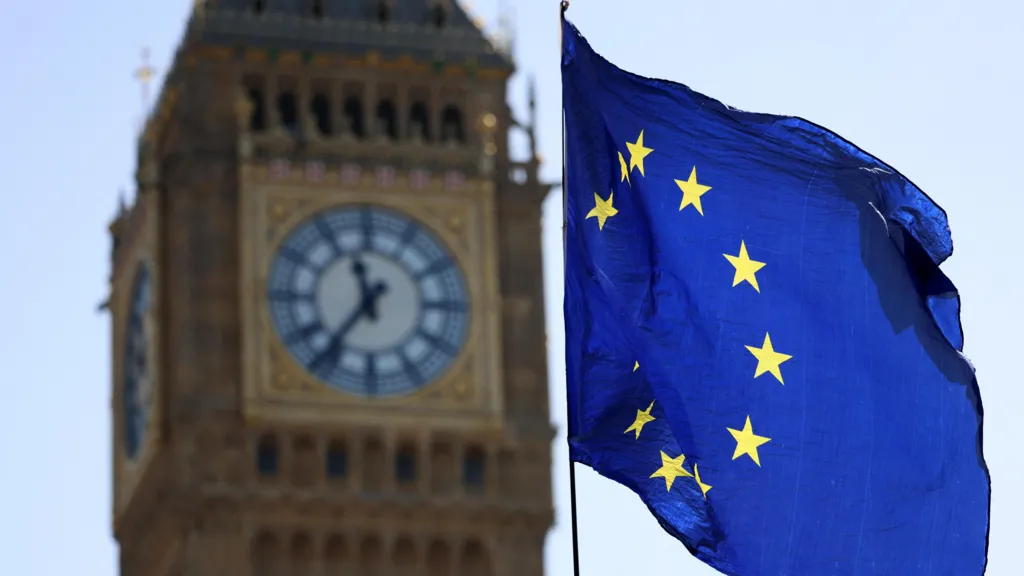"It's a cold world out there. We need to huddle together."
So said a European Union diplomat to me, confident of the magnetising effect on both the EU and the UK of the world having changed so significantly since the original Brexit deal.
Both sides privately talk up what is seen as the remorseless logic of closer defence and security ties.
The British government, in trying to ensure it has the political space to justify a (partial) re-writing or tweaking of the relationship, talks of now being in "the mid 2020s" as a reminder of the time that has elapsed, and events that have unfolded, since all the noise, negotiations, anger and elections that leaving the EU provoked.
Without question, Russia's full scale invasion of Ukraine and President Trump's overt reluctance to subsidise European security as he sees it have changed the conversation about defence.
Whatever your views about Brexit, a word of warning: the next 24 hours or so might be triggering if the kind of headlines and phrases that made the news for years on end became mildly off-putting roughly between 2016 and 2020.
There will be talk of haggling, of fish, of sovereignty, of cash and of courts. And we have already had senior figures on both sides talking about last-minute tweaks and that old favourite in the phraseology of EU negotiations: "Nothing is agreed until everything is agreed."
It feels like a landmark moment. After the years of Brexit noise, there were the years of (relative) Brexit silence. Now, it is returning to the news again.
What will change is actually relatively narrowly defined – the government has promised it won't take the UK back into three of the biggest pillars of the EU: its customs union, single market or the freedom of movement of people around the bloc.
But that much accepted, there is plenty that is being talked about.
Over the weekend, the negotiations rumbled on, led on the UK side by Nick Thomas Symonds, the minister in charge of the UK's relations with the EU.
Alongside him has been Michael Ellam, who returned to government in January to lead, at an officials-level, the negotiations with the EU. Ellam was previously director of communications in Downing Street when Gordon Brown was prime minister.
In the last hours, the talks took place virtually.
At various points in recent months they have happened face to face.
